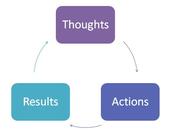When should you innovate? When times are tough, most organizations cut costs and hope to weather the storm. As we've discussed in previous articles, hope is not a strategy, and the best time to innovate is ALWAYS.
How can you innovate during tough times? Well, some might argue it's the BEST time to innovate. When times are great and you're making money hand-over-fist you rarely have time to stop and fix any inefficiencies or problem areas. And as profits are rolling in those issues aren't perceived as getting in the way. You're focused on putting all resources towards maximizing the moment.
There are two types of innovation: operational efficiencies and diversification/growth. Research shows that companies that manage both types of innovation perform better than those that only practice one type of innovation. And, not surprisingly, those that only focus on one type of innovation still outperform those that don't innovate at all.
When things slow down, it's an ideal time to take a good look at processes, products, and services. Where are the margins best? Where can you consolidate resources? What processes can be improved?
Once you have your operational efficiencies maximized, you can turn your attention to diversification and new ways to grow. Ask your customers what else they want and need related to and/or in addition to your existing offerings. Challenge your team to come up with game-changing ideas and reward them for the ones that get implemented.
The death of innovation is short-term thinking. Living life one quarter at a time is a surefire formula for going out of business. It makes me think of the process of creation and how that relates to strategic planning...
The process of creation is: What we THINK about leads to the ACTIONS we take, which leads to the RESULTS we get.
When times are tough we need different results, which requires innovation: a new way of thinking. All too often companies get it backwards. They use their previous results to dictate their future actions and how they think. If you want to change your results, you need to innovate (change your thinking) first, and then implement (take action on) those innovations to get new results.
During times of rapid change, top organizations reinvent themselves every year (depending on the industry, some do it every six months). Practice zero-based thinking: throw out all assumptions and ask yourself, "Knowing what I know now, what would I start, stop, and continue doing?"
If innovation is one of your strategic initiatives, then you have to invest in it not just when times are great but also when times are tough. This leads to a sustainable innovation effort, which ensures your future.
Noah built the Ark to weather the storm, and he did it when the sun was shining...
Thanks for reading - If you enjoyed this article, please click the Like button above and let me know! (and if you like it, why not share it?)
About the Author:
David B. Nast owns FocalPoint Business Coaching & Corporate Training based in Cherry Hill, NJ. David is an Award-Winning Certified Business Leadership Coach with over 25 years of experience in Executive Coaching, Leadership Development, Corporate Training, Career Coaching, Executive Search, and Human Resources. He has coached thousands of CEOs, Business Owners and Executives.
For additional insights from David, visit his LinkedIn Pulse Author Page and follow him on Twitter @DavidBNast. You can also email David at dnast@focalpointcoaching.com.





